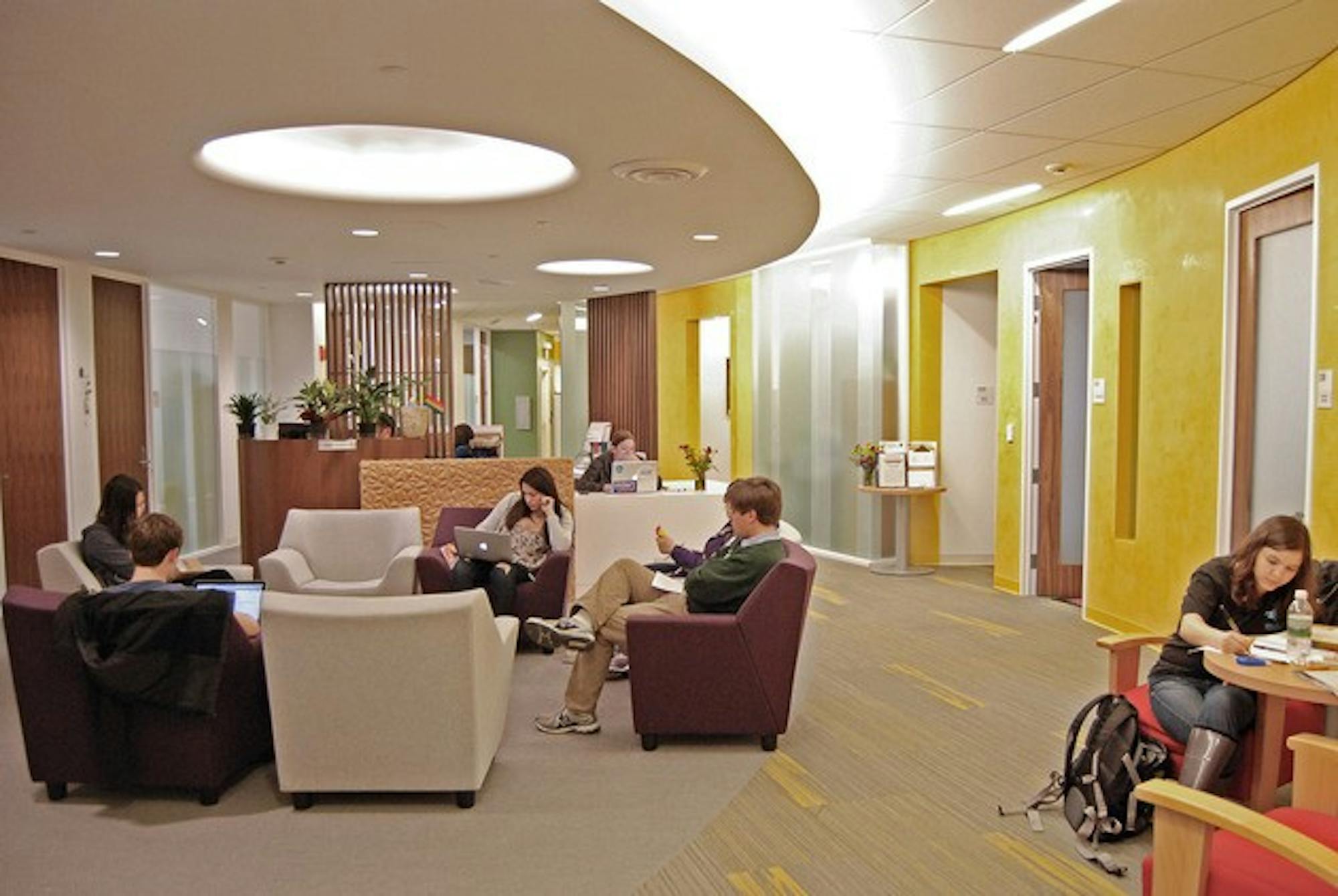Advising 360 is a two-year program designed to assist students beginning their freshman fall until they declare a major. Since the program has not yet gone through a full cycle, it is too soon to fully evaluate its success, said Allen Hockley, an Advising 360 faculty advisor and art history professor.
"I'm not yet in a position to assess the effectiveness of the entire program but my experience thus far suggests that 360 can be a tremendous resource for students who recognize its potential," he said.
The program has received positive reports from students, said Natalie Hoyt, assistant dean for undergraduate students and the dean assigned Choates cluster residents in Advising 360 this year.
"We did a lot of careful sharing of expectations with both faculty and students, and I think because of that very intentional language, students were more aware of what role they play in advising and what role faculty play, and how to best use each resource to make the most of it," Hoyt said.
Upperclassmen are not likely to notice any changes to their advising, and Hoyt said the framework of first-year advising has not undergone any changes. Every year, deans tweak advising systems slightly to maximize the impact of open houses and informational emails, among other tools. "Those pieces of the puzzle are always evolving from year to year, but nothing has changed in the structure of the system."
This past summer the Undergraduate Dean's Office, in conjunction with the Office of Pluralism and Leadership, pre-health advising and athletic advising, introduced 16 advising videochats for members of the incoming class, according to Hoyt. Over 110 students took advantage of the opportunity to become familiar with the College's curriculum and ask general questions.
Assistant dean of faculty for pre-major advising Cecilia Gaposchkin said that while first-year advising programs are slightly different, all students have access to the same resources, including the Undergraduate Deans Office and the Office of Pluralism and Leadership, now both located on the third floor of Baker-Berry Library in Carson Hall. All students are assigned a faculty advisor and dean and receive the same information regarding special programming.
The ultimate goal of the student-advisor relationship is for students to discuss their broader goals and plans, Gaposchkin said.
"Pre-determining one's area of study goes against the value we place on intellectual exploration and growth," she said. "We are committed to a liberal arts ideal that students explore and be exposed to new areas of knowledge."
Hoyt agreed, saying that meetings should not simply be transactional in nature or solely about picking out courses, but that students need to reflect on their interests.
"It may not be that [advisors] can map out their engineering sequence for them, but that's not the only role of the advisor," Hoyt said. "The advisor is also there to talk about what it means to have a liberal arts education, what it means to be a Dartmouth student and all of the nuances of being an academic and intellectual, not just do I take Math 003 now or wait until next term.'"
Jessica Goldstein '16, who was enrolled in the standard advising program, said her dean was helpful, informative and accessible.
The Undergraduate Deans Office will host open office hours during course election, after seeing over 400 students attend last year.




